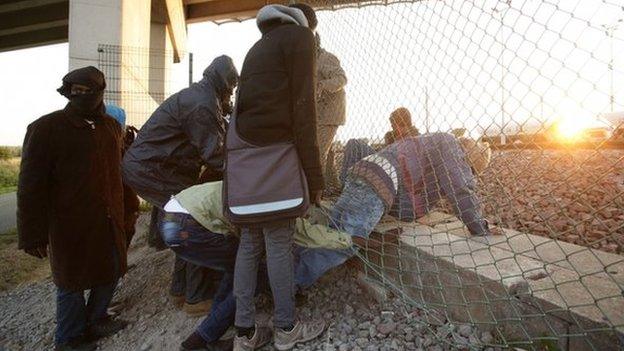Calais migrant crisis: Breaches of Eurotunnel 'down'
- Published
The BBC's Tomos Morgan says migrants have been put off by the new fences in Calais
The number of migrants trying to get into the Eurotunnel terminal near Calais has fallen to about 150 a night, the operator says, down from a high of 2,000 at the end of last month.
The company said extra security measures recently put into place were making a "real difference".
But it said the number of attempted break-ins remained "unacceptable".
Migrants in Calais make nightly bids to cross the Channel into the UK, causing delays on some cross-Channel services.
The UK government says it is spending £7m to improve security at the terminal, but accepts there is still more work to do.
Extra fencing, paid for by the UK, has been erected, aimed at making it harder for migrants to get onto the platforms and trains at the terminal.
Additional CCTV cameras, infra-red detectors and floodlighting have also been installed to secure key segments of the fence.
However, French police have told the BBC the fences are a "short-term solution" and that migrants will simply move to places where security is weaker.
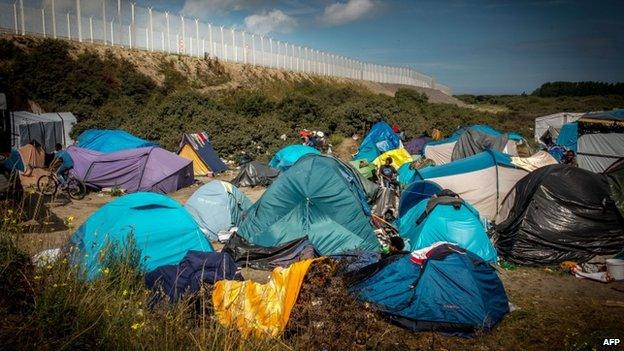
Several thousand migrants are living in a makeshift camp in Calais known as The Jungle
Eurotunnel said an increase in police numbers is keeping some migrants from getting near the terminal, leading to fewer disruptions for passenger and freight trains.
It also said the fall in the number of attempted break-ins was a "huge improvement", adding that most of those gaining access to the terminal were being apprehended by security guards.
However, the operator does believe that some migrants are still managing to make it to Britain.
Natalie Chapman, from the Freight Transport Association, told the BBC her organisation had seen "a big reduction" in the number of calls from lorry drivers worried about the situation in Calais in the last two weeks.
'Desperate situation'
"We still have concerns about the welfare of drivers... but once they're in the secure compounds around Eurotunnel things seem to be a lot better," she said.
At least nine migrants are known to have died while trying to make the crossing into Britain since June.
Steve Symonds, from Amnesty International UK, said migrants in Calais remained in a "desperate situation".
Many were still living in "very poor accommodation", he added, while others had moved to other areas in a bid to get to the UK.
"We've seen reports most recently in Belgium of migrants gathering nearer to ports there, and of course Dunkirk also has been in the news and other areas in northern France," he said.
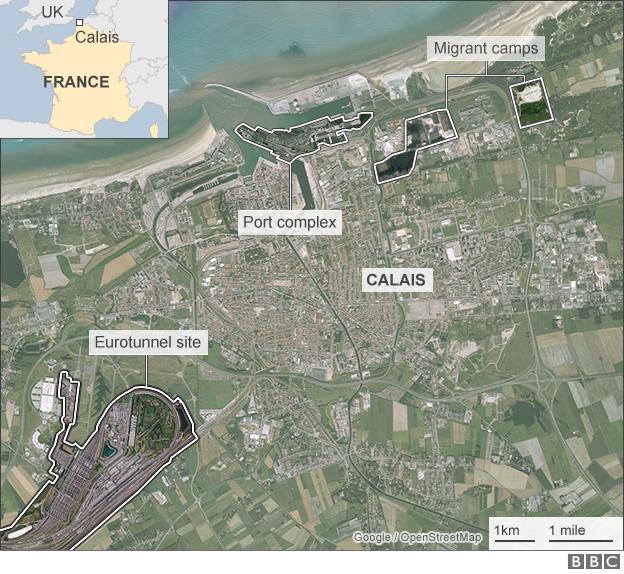
On Saturday, Prime Minister David Cameron defended the UK government's handling of the Calais migrant crisis, insisting it was trying to make sure illegal immigrants could not "break into Britain".
"We need to... break the link between getting on a boat in the Mediterranean and getting the right to settle in Europe," he said.
Officials estimate that 250,000 people may have crossed by boat into Europe this year.
More than 40 migrants died in an overcrowded boat in the Mediterranean on Saturday.
Meanwhile, Sunday's Songs of Praise included footage filmed at a makeshift church in the largest migrant camp near Calais, known as The Jungle.
Songs of Praise has been criticised for taking cameras to a makeshift church in a Calais migrant camp
Producers have been criticised for their decision to visit the camp, but the BBC's head of religion and ethics, Aaqil Ahmed, said the programme looked "at how people express their faith" and was "not a political statement or a judgement on migration".
During the show, aired on BBC One, presenter Sally Magnusson interviewed a migrant called Daniel, who said he was forced to leave Sudan because of his faith.
"Every day I pray... not just to go to England, but also for my life," he said.
Daniel, who describes himself as a Protestant, admits that he tries to get to the UK every night.
Asked how he tries to do that, he says: "Under the train, under the train."
- Published15 August 2015
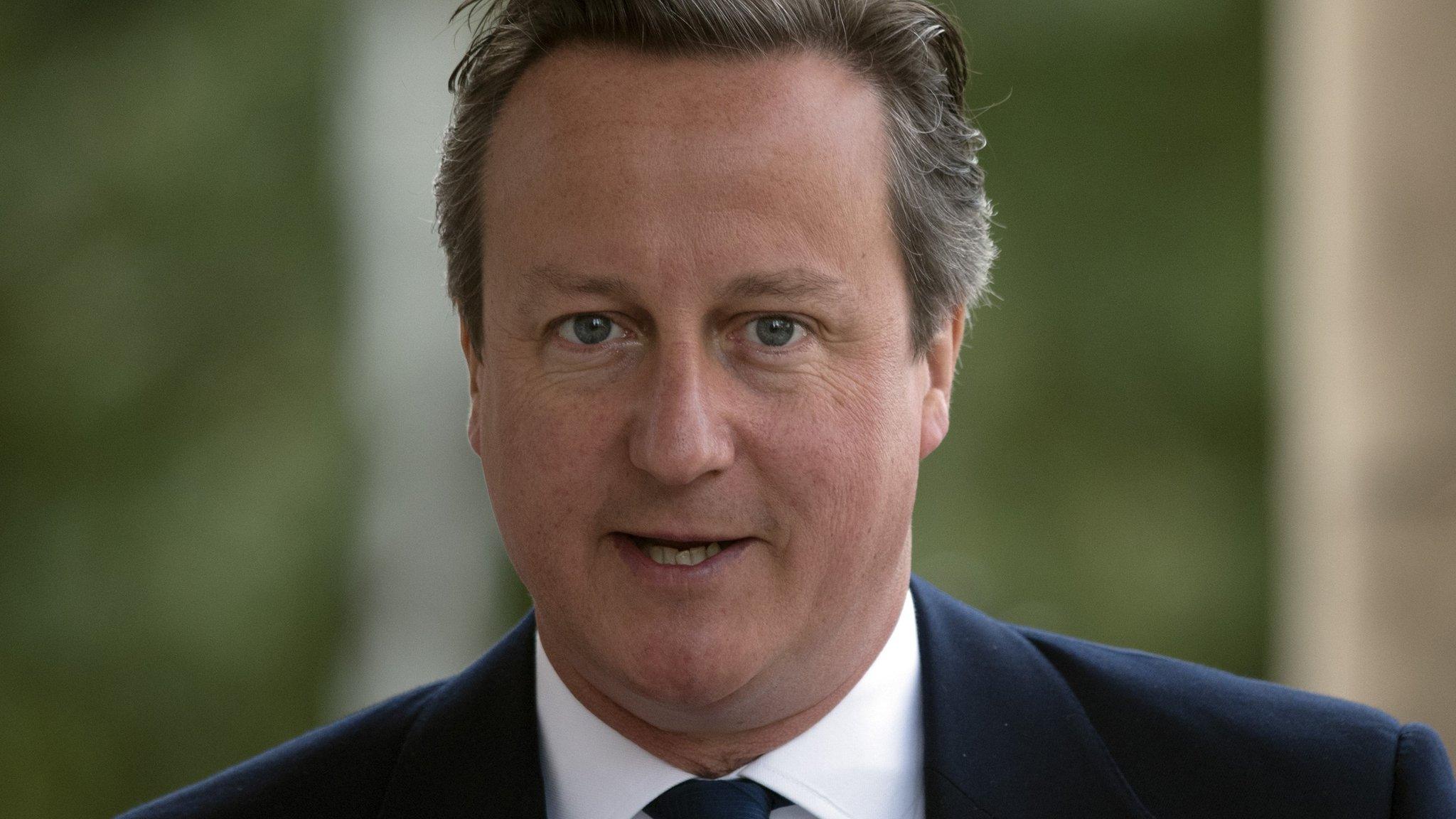
- Published15 August 2015
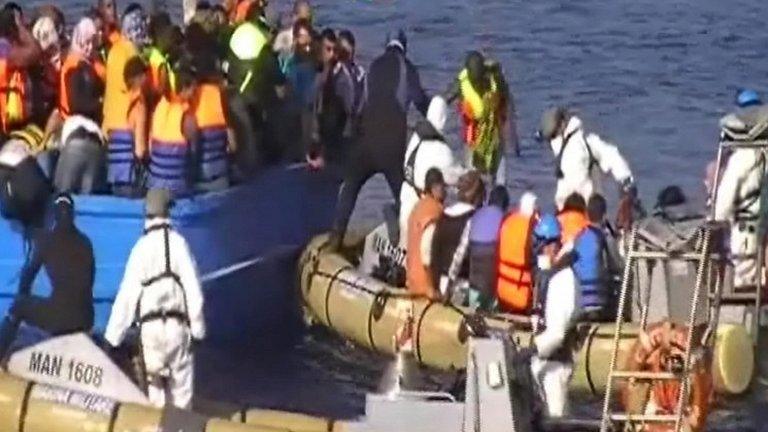
- Published12 August 2015
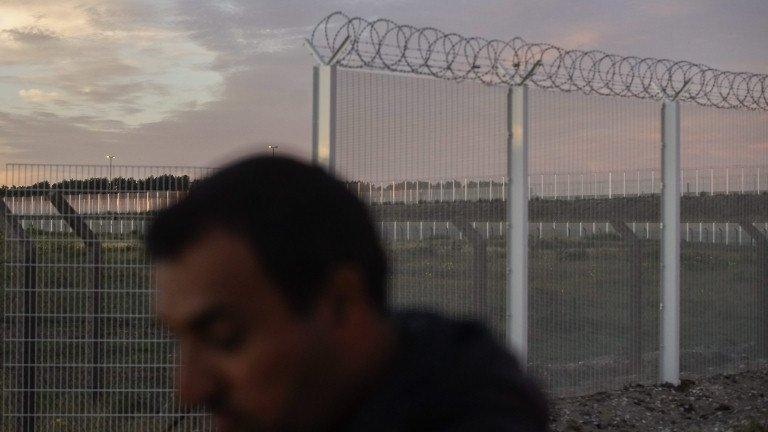
- Published2 August 2015
